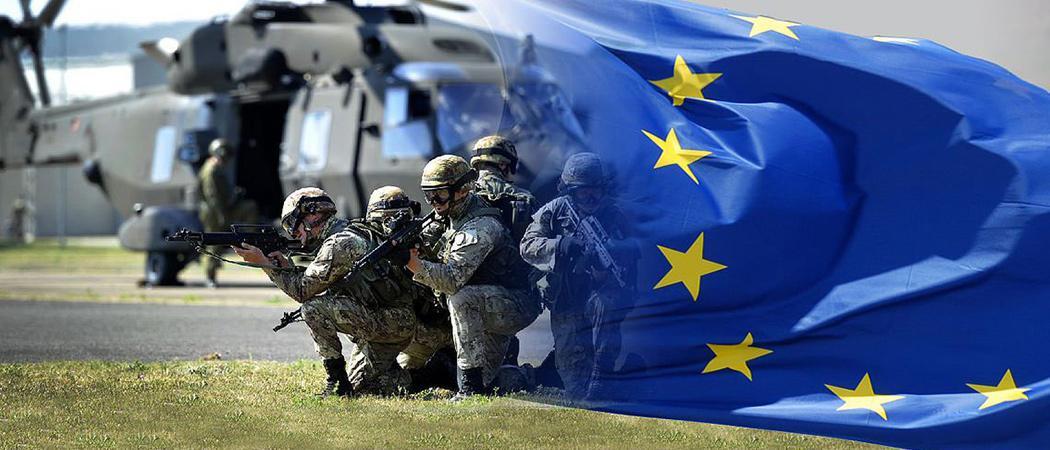By head count, SMEs represent 40% of those awarded EDF money. But their share amounts to only 20% of the total funding

Photo: European Defence Agency
The European Commission has unlocked €1.2 billion from the European Defence Fund (EDF) for 61 industry projects, but SMEs unsatisfied with the way the funding has been distributed are calling for a wider involvement.
"Funds allocated for SMEs are relatively limited, and this results in a limited number of projects, as the majority of funds go to the big companies", said Roberto Senatore, chief technology officer at Civitanavi Systems which manufactures navigation systems.
The €7.9 billion EDF was set up in 2021 to strengthen collaborative military R&D programmes across members states and boost Europe’s defence industry, with the ultimate aim of increasing the EU’s strategic autonomy.
It is backing a range of companies and military capabilities, from the traditional ones, such as next-generation fighter aircraft and armoured vehicles, to deep-tech applications and disruptive technologies, including artificial intelligence, quantum technologies, semiconductors and new materials.
Of the €1.2 billion, €322 million (30%) will go to 31 research projects and €845 million (about 70%) to 30 large-scale projects.
The Commission has put a lot of emphasis on the role of SMEs in the EDF, going as far as to dedicate one call category to 'promising projects involving cross-border SMEs and start-ups’.
But while SMEs represent 40% of all the organisations awarded EDF funds, they will only receive around 20% of the total funding.
The EU should increase the funding available for SMEs, said Senatore. “More funding would lead to investing in more projects in diverse technologies,” he said.
Fernet Radovan, head of research at Guardiaris, which develops military simulation trainers for marksmanship and tactical training, agrees SMEs should have more room in the calls. He called for more emphasis on the SME-type projects, noting it is difficult for small companies to take part in big projects.
Radovan would also like EDF to help SMEs to develop their own stand-alone products instead of just supplying components to big companies.
Despite these reservations, SMEs see the EDF as a smooth, straightforward instrument, which will help companies grow, create interconnections and synergies, and strengthen links between scientific research and the defence industry in the development of new technologies.
"International collaborations are a key factor to create synergies on specific technologies," said Senatore.
Both Guardiaris and Civitanavi are part of two SMEs dedicated projects, the quantum-based simultaneous inertial navigator and vector, or Q-SiNG, and advanced biometrics in training and simulation (ABITS).
Q-SiNG aims to develop quantum-based technology to improve the accuracy of navigation and positioning in all types of military vehicles, including submarines and aircraft, including in areas where access to global satellite navigation systems is blocked.
ABITS aims to create a training simulator in which physiological sensors are used to monitor the psychophysical state of trainees, including attention, stress and cognitive load.
National involvement
Besides actions from Brussels, Senatore said that more can be done for SMEs in the framework of the EDF at a national level.
Ministries of defence, “should push more […] to ease collaborations between big and smaller companies. This would create more synergies not only at the national level but also internationally," he said.





 A unique international forum for public research organisations and companies to connect their external engagement with strategic interests around their R&D system.
A unique international forum for public research organisations and companies to connect their external engagement with strategic interests around their R&D system.